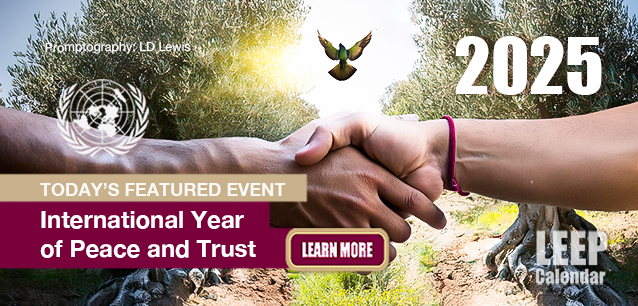 AD
AD
Today is: December 31
Scroll to explore events active on this date.
Additional Events on LEEP
LEEP INK FEATURES

August? Absolutely!
In August, we live through the Dog Days of Summer. It's hot and often humid, and those who can leave for better climates do. Down south, winter is in full force. August is also known as "the ...

In The Heat of July: July 2025 Events
Is it hot enough (or cold enough if you're below the equator) for you yet? There is actually a day for that! Like every month, I pick a diverse collection of events you may or may not know about. This ...

May Blooms: Events in May 2025
Along with October, May is one of the most densely packed months of the year. It's before the summer humidity and the last whole month of the school year. The weather is warming in t...
About Continence Week
Women , Lifestyle
Ends: Jun 23, 2024
DESCRIPTION:
"World Continence Week is a timely reminder that most people affected by incontinence can be treated, better managed, and even cured. It is important people make the call for help," says the CEO of the Continence Foundation of Australia, Rowan Cockerell.
Millions worldwide suffer from incontinence, but they don't need to. It's highly treatable, yet only thirty percent seek help. World Continence Week hopes to change that and encourage those suffering to speak up and get on with their life.
According to the Continence Foundation of Australia:
Most people affected by incontinence can be better treated, managed, or even cured.
About five million Australians – one in four aged 15 years or over—are incontinent.
By 2030, the prevalence of incontinence is estimated to increase to 6.5 million Australians.
Seventy percent of incontinent people do not seek help.
Eighty percent of people who report they are living with incontinence are women.
Half of those women are under 50 years.
One in three women who have given birth wet themselves.
One in five leaks when they laugh.
Twenty-five men say they are, or were, incontinent.
Incontinence impacts self-esteem, motivation, dignity, and independence.
VIDEOS
SUPPORTING DOCUMENTS
Currently, this event does not have supporting documents.
ADDITIONAL IMAGES
Currently, this event does not have supporting images.
Where would you like to go now?
 AD
AD

























































/footer-logo.svg)
